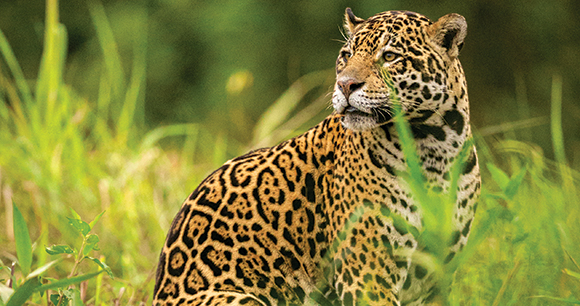In May, Colorado enacted SB25-168, the nation’s most comprehensive state law to combat wildlife trafficking. The law is unique among state laws in that it prohibits the selling, possessing, transporting, importing, or exporting of any species listed under the federal Endangered Species Act, under Colorado’s own endangered species law, or on Appendix I to the Convention on International Trade in Endangered Species of Wild Fauna and Flora (CITES)—the principal mechanism through which the world’s nations regulate international wildlife trade.

The broad number of species covered establishes Colorado as a leader among states in the fight to reduce wildlife trafficking. At least 13 states and the District of Columbia have enacted laws to restrict or ban the trafficking of certain wildlife products within their borders. Most of these laws, however, only cover select, commonly trafficked foreign species and their parts, such as elephant ivory, rhino horn, and the skin, bones, and fangs of big cats.
Colorado has seen a rise in poaching in recent years. In 2022, Colorado Parks and Wildlife (CPW) penalized more than 2,600 poachers, who probably made up only a small percentage of the total. Included among the species illegally killed or taken from their homes in Colorado were reptiles and amphibians for the pet trade, eagles for their feathers and other parts, and black bears to extract bile from their gallbladders for use in traditional Chinese medicine.
Meanwhile, Denver International Airport has become a hub for wildlife trafficking. Last year, the US Fish and Wildlife Service reported seizing 1,150 parts or products of illegally traded wildlife at the airport. From October 2023 to March 2025, it reported seizing parts, products, and live specimens from more than 56 species, including red-tailed black cockatoos, saltwater crocodiles, jaguars, reindeers, harp seals, and species of neotropical parrot, eagle, hawk, armadillo, shark, cobra, and bear.
The trafficking of live and dead wildlife and animal parts generates over $20 billion a year, making it the world’s fourth most profitable illegal international trade operation, trailing only the trafficking of drugs, humans, and counterfeit goods. Poaching for the illegal wildlife trade is a brutal, bloody business: Animals are often shot with military-grade weapons, and tusks, horns, and other parts are obtained by mutilating the animals—sometimes while they are still alive. Tight-knit groups of social species are torn apart, and babies who aren’t seized or immediately killed are often orphaned and left to die. Wildlife trafficking also poses a growing danger to people due to disease transmission and the involvement of organized crime networks that are killing an unprecedented number of African park rangers.
Colorado’s law will help to protect humans and animals from these terrible fates and should serve as model legislation for other states. AWI supported this bill from the beginning, submitting written testimony and delivering remarks to legislators. We commend the governor, CPW, and the bill’s cosponsors—Sens. Scott Bright and Dylan Roberts and Reps. Ryan Armagost and Cecelia Espenoza—for supporting a legislative solution to protect and preserve wildlife in Colorado and beyond.